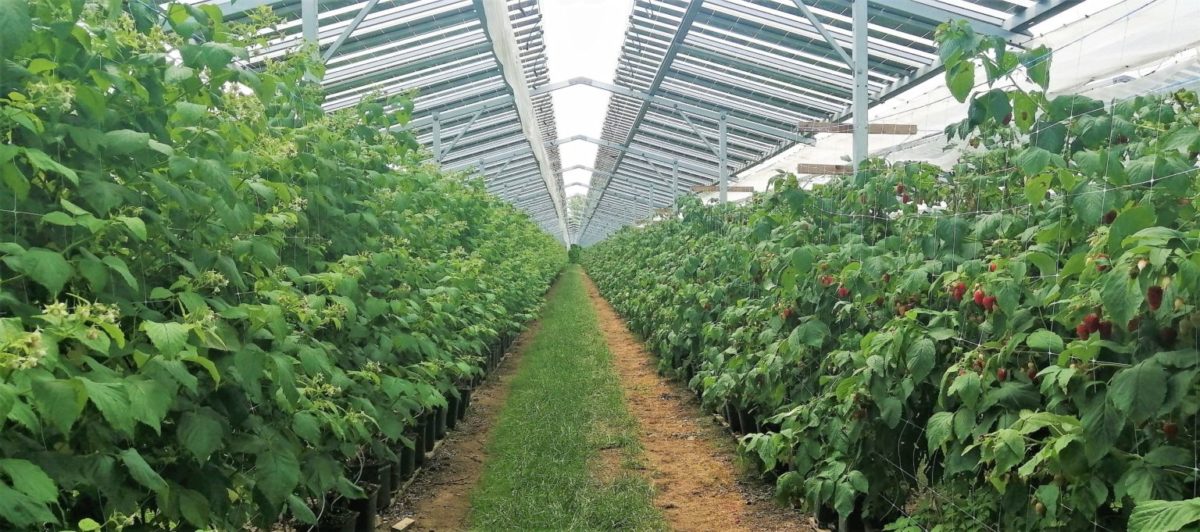From pv magazine France
The Netherlands, with 14 GW of solar capacity, lacks land for the development of new PV projects.
“This is why the Dutch government has adopted a more flexible regulatory framework, in particular in terms of authorizations, for projects built on non-conventional surfaces, such as agrivoltaics or floating solar,” Maximilian Tegtmeyer, agriPV project manager for BayWa r.e.
In June 2020, BayWa's Dutch subsidiary, GroenLeven, built a first pilot agrivoltaic park in Babberich, near the border with Germany. The companies tested two types of panels at the facility, including semitransparent modules. The project was extended in June 2020 to a commercial format of 3.2 hectares.
The traditional plastic tunnels have now been replaced by a 2.67 MW solar structure, made with the help of Germany's Zimmermann. The 250 W semi-transparent panels each have a transparency rate of 35%.
“Previously, we worked with the Chinese manufacturer BYD and now we call on the company HT/SAAE,” said Tegtmeyer.
The PV modules generate 2,403 MWh per year, fully injected into the grid. A 60 kW Huawei string inverter is installed at the end of each row, to avoid the passage of cables from one row to another.
The investment cost per hectare was nearly €1 million ($1.01 million), which corresponds to approximately €1.15/W, which compares to €0.50/W to €0.80/W for a conventional ground-mounted project.
“BayWa r.e. signed a long-term lease with the operator, as for any renewable energy project,” said Thomas Domblides, regional solar development manager for BayWa r.e. France. “For his part, the farmer has signed a lease loan, so the two financial flows offset each other.”
This content is protected by copyright and may not be reused. If you want to cooperate with us and would like to reuse some of our content, please contact: editors@pv-magazine.com.




12 comments
By submitting this form you agree to pv magazine using your data for the purposes of publishing your comment.
Your personal data will only be disclosed or otherwise transmitted to third parties for the purposes of spam filtering or if this is necessary for technical maintenance of the website. Any other transfer to third parties will not take place unless this is justified on the basis of applicable data protection regulations or if pv magazine is legally obliged to do so.
You may revoke this consent at any time with effect for the future, in which case your personal data will be deleted immediately. Otherwise, your data will be deleted if pv magazine has processed your request or the purpose of data storage is fulfilled.
Further information on data privacy can be found in our Data Protection Policy.